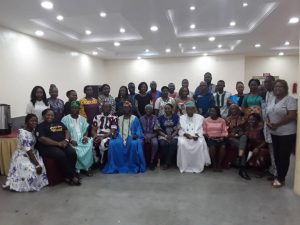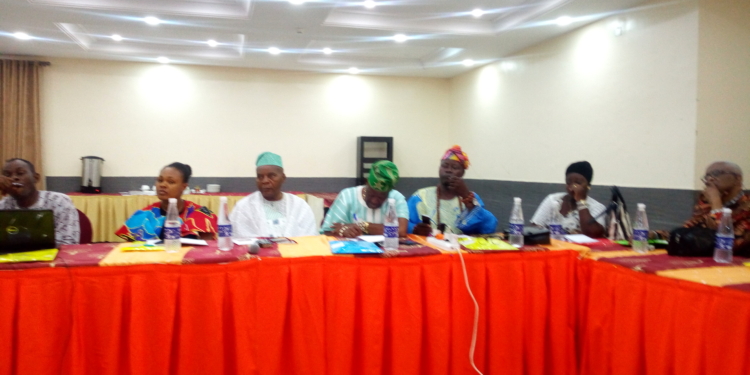Civil Society Organizations have been charged to engage the government from an informed perspective and adopt Result Based Management (RBM) approach which would help to achieve an inclusive participatory planning and budgeting process.
The charge was given during a training program for 30 Civil Society Organizations on health planning towards an inclusive Participatory Planning and Budgeting Process sponsored by RSSH Global Fund and executed by the Lagos State Ministry of Health.
The facilitator at the training expalined that RBM is a participatory and team based approach which can help to achieve results by improving program and management efficiency and effectiveness.
It was illustrated that “if 500 million naira is budgeted, approved and disbursed to reduce maternal mortality but it doesn’t reduce, CSOs should be able to challenge the reasons behind this and hold government accountable.”
RBM was described as a tool for managing performance and serves as an integral part of achieving reforms. It shifts management focus in the public sector from bureaucratic processes to outputs and eventually to outcomes and impacts.
The consultant butressed that elements of good governance include public participation, accountability and transparency, respect for the rule of law, gender equality and social inclusion which CSOs should always demand from the government.
Participants from the 30 CSOs were able to contribute their quota, share their challenges in relating with different MDAs across the state for the purpose of mitigation and also recommended ways to achieve close relationship between CSOs and government.
One of the participants, Bukky Adebiyi, CEO Jakin NGO, decried irregularities by some unqualified healthcare practitioners who treat patients just for the purpose of earning income.
According to her, “auxiliary nurses in our communities are fond of treating people when they are not qualified to do so. All they know is to pass intravenous injections even when it is not needed and people at the community level usually patronize them which is unsafe for them.”
She suggested that with the efforts of CSOs and task force, the auxiliary nurses can be brought to book, to ensure that people access effective healthcare services.
For his part, Dr Adebukola Adebayo, Executive Secretary of the Joint National Association of People Living With Disabilities, Lagos State Chapter who was represented by Kemi Odusanya said concerns of PWDs regarding health facilities in the state is about accessibility.
“It is imperative that there’s a sign language interpreter for a deaf person at the hospital and accessible entrance for physically challenged to ensure that no-one is left behind.”
Various participants spoke on the need to digitize the healthcare sector in the state by ensuring availability of data in a digitized form for engagement at various levels.
The organisations represented at the training are; Lagos State Civil Society Partnership (LACSOP), Community Health Sector Forum (CHEF), Quality Assurance / Independent Monitors, Lagos State Accountability Mechanism for Maternal, Newborn & Child Health (LASAM), Public Health Sustainable Advocacy Initiative (PHSAI).
The others are Civil Society on HIV/AIDS in Nigeria (CISHAN), Association of CSOS on Malaria, Immunization & Malaria (ACOMIN), African Women, Water, Sanitation and Hygiene NETWORYK (AWWASHNet), Health Reform Foundation of Nigeria (HERFON) and Joint National Association of Persons Living With Disabilities (JONAPWD).


